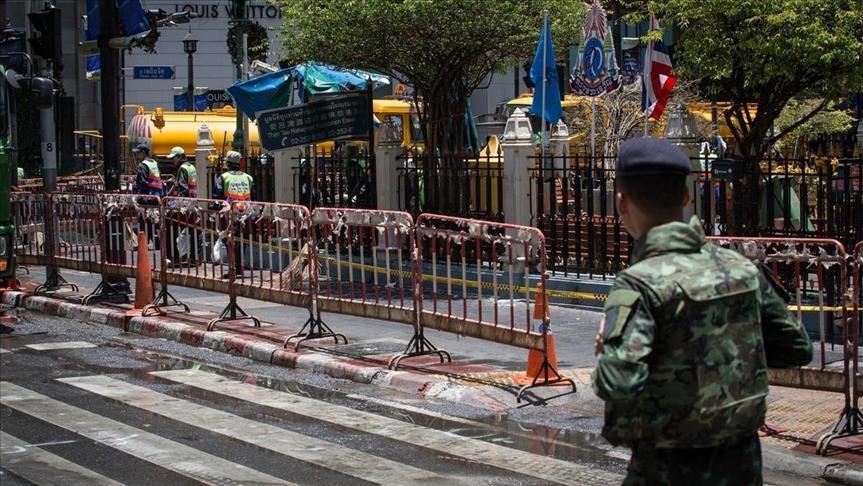Lawyer says client tortured into Bangkok bomb confession
Lawyer tells Anadolu Agency that Uighur client has now denied charges of murder or involvement in attack that killed 20, retracted earlier confession

Banghok
By CS Thana and Max Constant
BANGKOK
The lawyer for a Uighur man authorities say has admitted planting a bomb in the Thai capital that killed 20 people says his client was tortured into a confession.
Chuchart Kanpai told Anadolu Agency by phone Monday that Bilal Mohammed -- formerly identified by Thai police as Adem Karadag and then as Bilal Turk -- has denied charges of murder or involvement in the attack, and retracted his earlier testimony.
"I can confirm that my suspect was tortured and physically coerced into making a confession in the early stages of the investigation," he added.
Mohammed is due to appear at a military court Tuesday with a second suspect -- Yusufu Mieraili -- to hear charges.
Police have said that both men have confessed to being paid by a mastermind to build and plant the bomb Aug. 17 at a religious shrine in central Bangkok.
The ensuing blast killed 20 people -- mostly Chinese tourists -- and injured 120.
Khanphai attempted to underline Monday that authorities had made up his client's guilty plea.
"There are no official entries of confession in the court documents that we have received," he said.
"Those statements were only in reports that police fed to the media. They are false."
Mohammed has said through his lawyer that he is an ethnic-Uighur refugee from Xinjiang Province in China, and claims to have been naturalized as a Turkish citizen.
The Muslim Turkic minority group claim their cultural and religious rights are curtailed by the Chinese authorities.
While police have claimed the bombings were masterminded by human traffickers, angry at Thai authorities for clamping down on their networks, Kanpai has said that the bomb was connected to the controversial deportation of a Uighur group held in Thai immigration centers to China.
Subsequent TV images of the Uighur sat on a plane blindfolded, handcuffed and under surveillance of guards, provoked uproar among local and foreign rights groups.
Today's allegation that police tortured Mohammed into a confession appears to contradict information Kanpai gave in an interview with Anadolu Agency last November.
“He [Mohammed] said that he was ordered to do the bombing and that the attack was connected to the deportation of 109 Uighur to China in July,” Kanpai said Nov. 3.
There was no explanation for the discrepancy between the two accounts.
The deported Uighur were from a group of around 400 held over immigration offenses in holding centers in Thailand at the beginning of 2014, many of whom claim to have Turkish nationality.
In July, 85 men and 24 women from the group were deported to China, while around 180 were sent to Turkey.
Many Turks welcome Uighur as their own, as they are among a number of Turkic tribes that inhabit a region they call East Turkestan and consider to be part of Central Asia, not China.
In the past year, allegations of torturing suspects to gain confessions have been levelled at both Thai police and military.
Two Myanmar workers have claimed they were physically and mentally tortured until they confessed to the murder of two British tourists on the island of Tao, while Thai NGOs claimed in a report released earlier this month that the use of torture by security forces to obtain confessions in the country's Muslim majority south is “widespread and systematic”.








